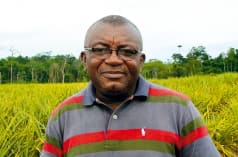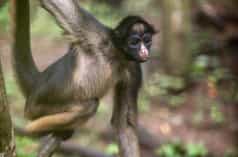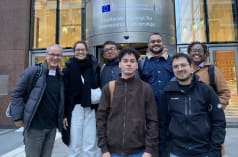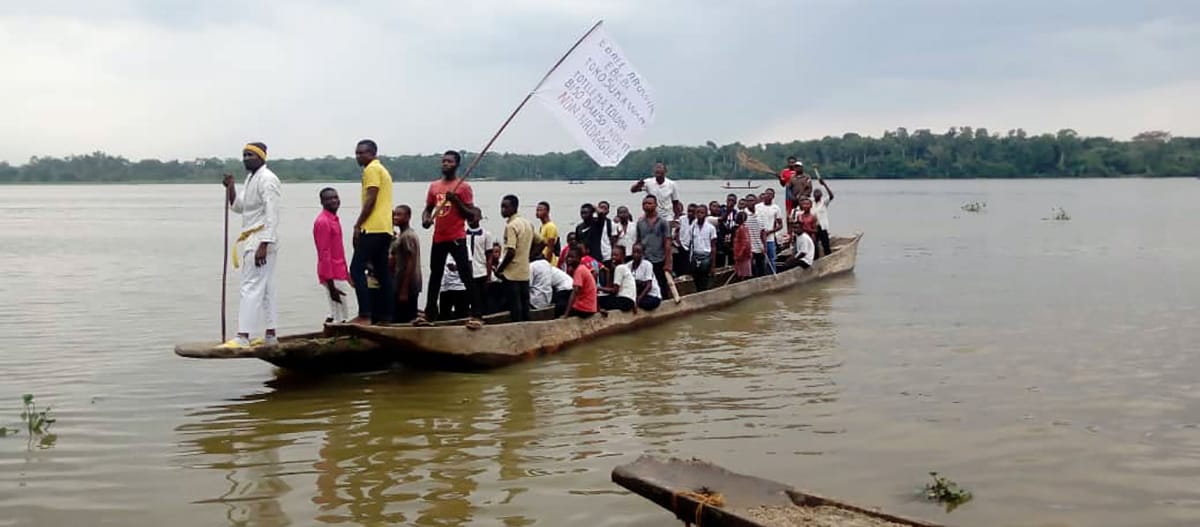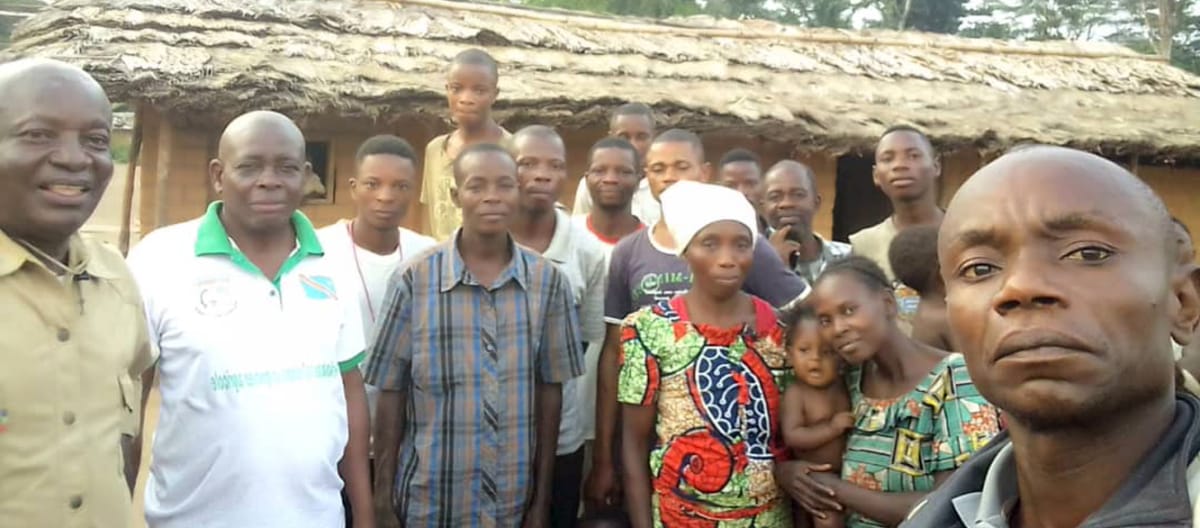A network for forests in the Congo Basin
The Democratic Republic of the Congo (DRC) is one of the countries in which we are most involved. Its forests, among the largest in the world, are a trove of biodiversity and crucial to protecting the climate. Our partner organization RIAO-RDC networks and coordinates numerous environmentalists in Kinshasa.
Project Overview
Project FocusEcosystems
Project Objective strengthening the protection of the environment and human rights
Activities informing, mobilizing and supporting local communities, networking activists
The world’s second largest rainforest, vast expanses of peat forest, gorillas, bonobos and okapis, unique national parks such as Virunga and Salonga, but also poverty, violence and nonexistent infrastructure – these are just a few of the keywords that describe the conditions faced by activists like those from our partner organization RIAO-RDC in the Democratic Republic of Congo (DRC).
Where injustice, violence and poverty prevail, human rights and environmental protection tend to fall by the wayside – and have to be fought for.
Among these fighters are the environmentalists of RIAO-RDC. RIAO stands for “Réseau d’Information et d’Appui aux ONG” (Network for Information and Support to Non-Governmental Organizations). RDC is the French acronym for “Républic Démocratique du Congo”.
The founder and face of the organization is Jean François Mombia Atuku. Jean François spent ten years in exile in Uganda and Senegal because of his work. He returned to Congo in 2020, despite knowing that he was not safe there. Just the year before, RIAO activist Joël Imbangola had been beaten to death.
I can’t stand by and watch my compatriots suffer,” says Jean François.
The RIAO-RDC network brings together 256 organizations and 337 local groups, such as farmers and fishermen, working throughout the country.
The network is working to stop gold mining and logging in the province of Tshopo. Locals have demonstrated in boats against the pollution of the Aruwimi River and the destruction of their livelihoods. “The companies are systematically plundering the forests without any benefit to the people,” says Jean François.
Jean François feels particularly close to the communities of Basoko, Lokutu and Yaligimba. For several years, he has been supporting the villagers in their struggle against Plantations et Huileries du Congo (PHC), a palm oil company. The communities complain of land theft, loss of livelihoods, harassment and outright violence. A mediation process in which RIAO represents the communities has been bogged down for a long time and is now in danger of collapsing.
The DRC is a poor country – but an expensive one. There are no roads, so activists have to pay a lot of money to hire boats to get from the city of Kisangani to Basoko and Lokutu. Journalists demand payment to attend press conferences. RIAO-RDC is therefore constantly struggling to plug financial holes.
We have therefore decided to support RIAO-RDC with a regular contribution. We want Jean François and his people to be able to concentrate on what is most important: protecting the largest rainforest in Africa.
